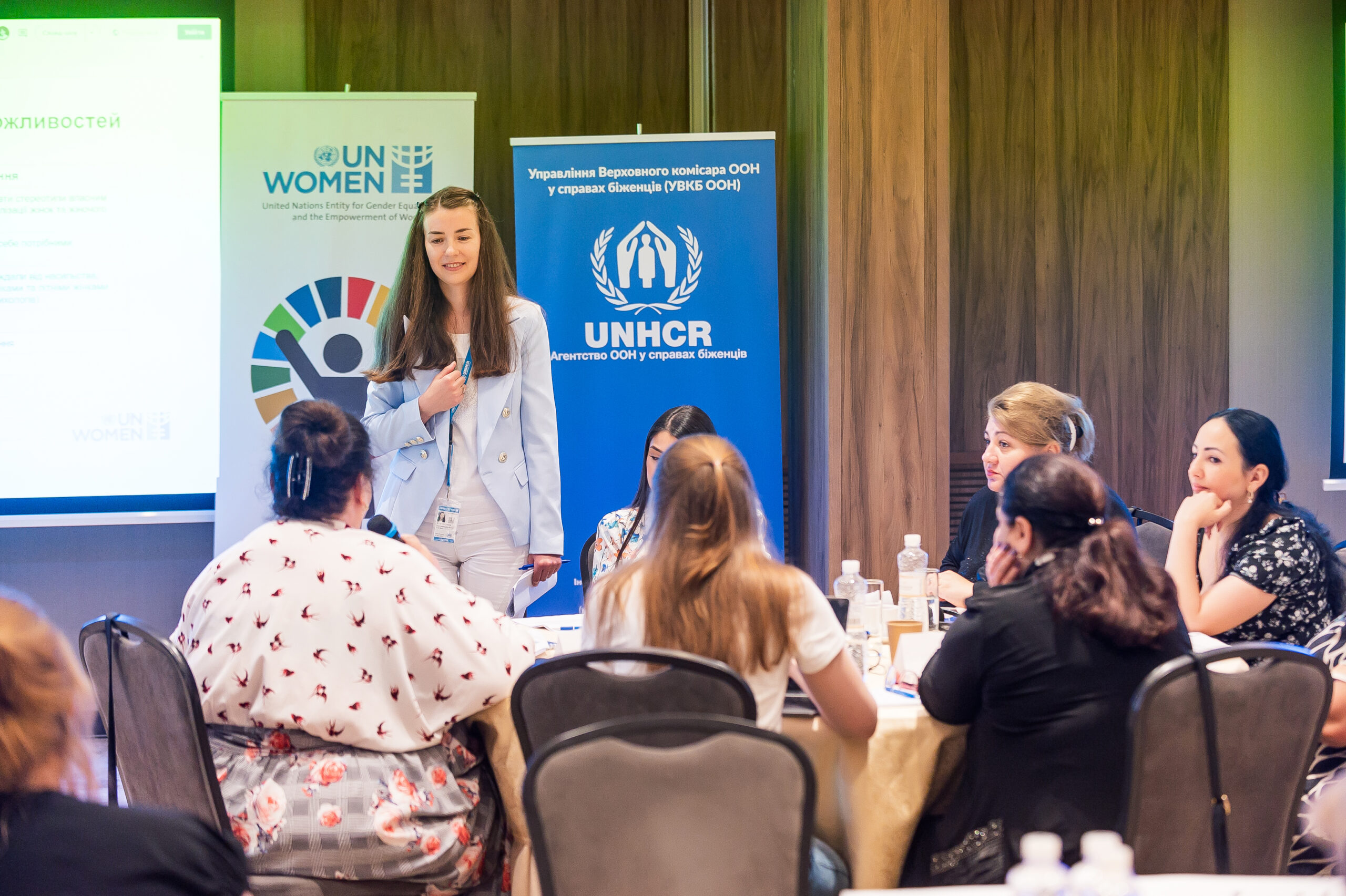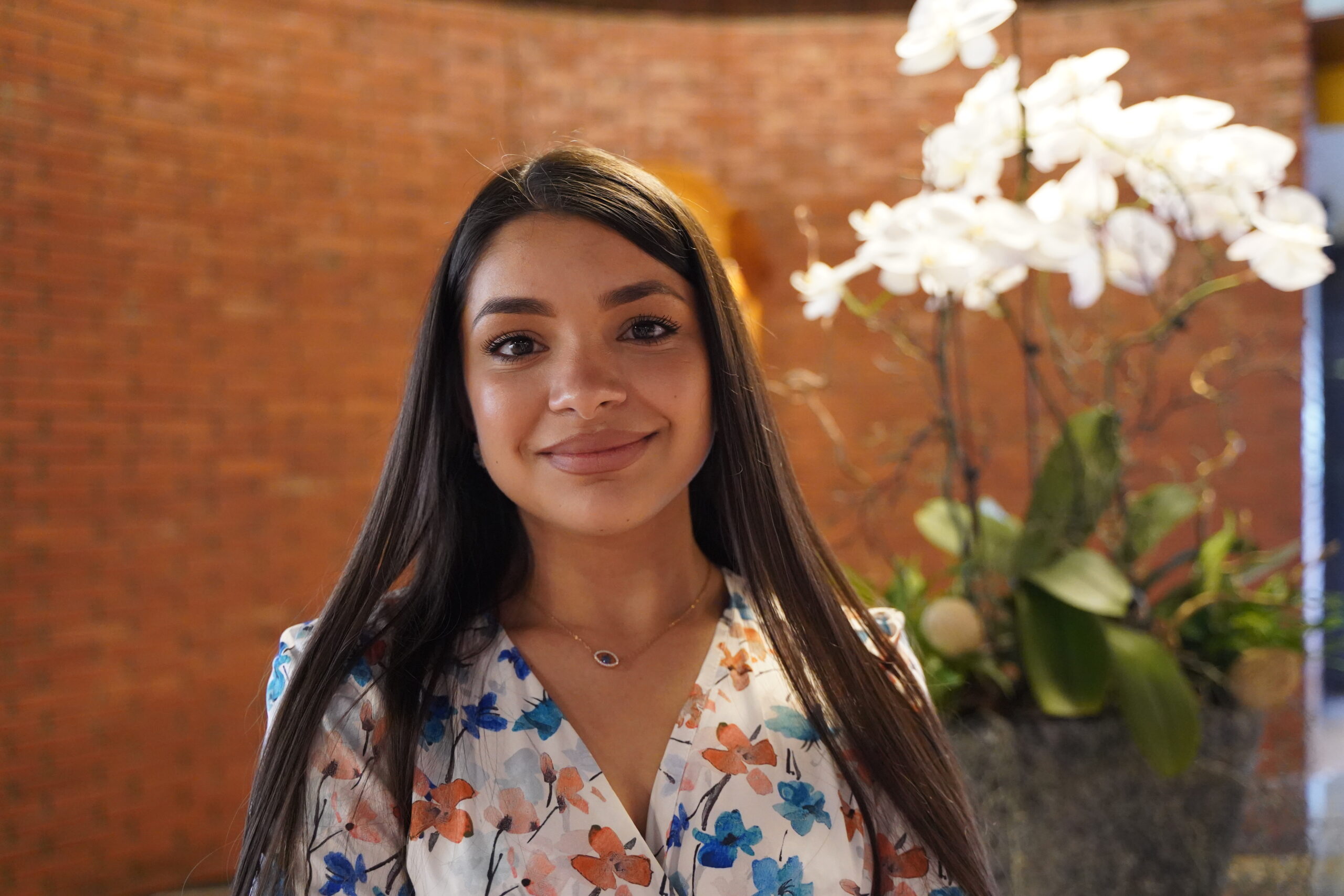
The UN Thematic Dialogue organized by UNHCR and UN Women brought together Roma-led civil society organizations to discuss inclusion of Roma people in humanitarian and early recovery programmes in Ukraine. © Dmytro Korenev
“In the first weeks of war, we worked non-stop to support Roma people who were fleeing frontline areas in Khersonska and Mykolaivska oblasts under shelling and arriving to Odesa. We could not find a place in the collective sites for them even when spaces were available,” Vira Drangoi recalls. The Roma Human Rights Centre which she leads in Odeska oblast provides aid and information assistance to Roma people fleeing the war and advocates for their equal access to humanitarian assistance. She is also engaged in activities aimed to empower the youth motivating them to develop leadership skills and help their community overcome deeply rooted stigma surrounding Roma.
Vira, 23 years old, is a successful legal expert, but experienced discrimination at a very young age because she is Roma. When she was nine, she was diagnosed with cancer and needed urgent and costly medical assistance. “I was in a hospital with my mother and the doctors treated us with prejudice, only based on the physical appearance of my mother. They were afraid that she would steal money collected for my treatment, and it took all her energy to change that attitude. But we won that battle and made everyone change their opinion about us – in the end, everyone in the hospital said that they saw Roma people differently,” Vira says.

Roma Human Rights Centre led by Vira Drangoi is supporting Roma community in Odesa, including those who were displaced from the worst-affected areas. © UNHCR/Iryna Tymchyshyn
Vira joined representatives from seventeen (17) Roma women-led civil society organizations that participated in the UN Thematic Dialogue organized by the UN Refugee Agency (UNHCR) and UN Women on 12-14 July. The event provided a platform for Roma women to identify challenges affecting their communities and ways to ensure that Roma people are included in humanitarian assistance and recovery efforts in Ukraine without discrimination.
During the event, Roma activists developed recommendations that were presented at a joint session of the UN Country Team led by the Resident and Humanitarian Coordinator, Denise Brown. The proposed actions include a comprehensive assessment to identify specific needs of Roma people in Ukraine, development of a non-discrimination school curriculum, engagement of Roma-led organizations in UN coordination mechanisms and partnerships with national and local authorities, as well as strengthening of their capacities in project management, fundraising and advocacy.
“During the war, we recorded cases when Roma people were refused not only to be accommodated in the sites hosting displaced people but also during the distribution of humanitarian aid. Roma communities are rather isolated and often lack access to information about available support, and this also creates challenges for their inclusion in the response,” notes Anzhelika Bielova, the head of the Association of Roma women “Voice of Romni”. She was displaced from Zaporizhizhia and found a temporary home in Uzhhorod, where she now coordinates the delivery of aid and livelihood projects for women in the most affected areas, such as Kharkiv, Zaporizhzhia, Irpin, Kryvyi Rih and, Toretsk.
According to the population census in 2001, there were over 47,000 Roma people in Ukraine. However, the non-governmental organizations estimate this number to be much higher – between 400,000 and 500,000 people as many remain undocumented. The lack of personal identity documents among Roma people negatively impacts their ability to access services and rights and can compound the discrimination that Roma people face.
“UNHCR, jointly with the Council of Europe and the Office of the Ombudsperson, is implementing a pilot project in Mukachevo to document Roma people and understand the obstacles that Roma people face in obtaining personal identity documents with a view to making proposals for legislative reform. We hope that this pilot project will result in positive legislative changes that will make obtaining documents easier and improve their access to services. Together with other UN agencies, we must make sure that free legal aid is accessible for Roma people so that they can obtain key identity documents, and that mothers can register their children at birth so that they have the documents necessary to go to school and obtain the skills they need to contribute to their communities and to the reconstruction of Ukraine. UN agencies like UNHCR need to work together with the Roma community to ensure that they are included in the discussions and decisions that will impact upon their futures,” said Karen Whiting, Deputy Representative (Protection) at UNHCR.
Share on Facebook Share on Twitter